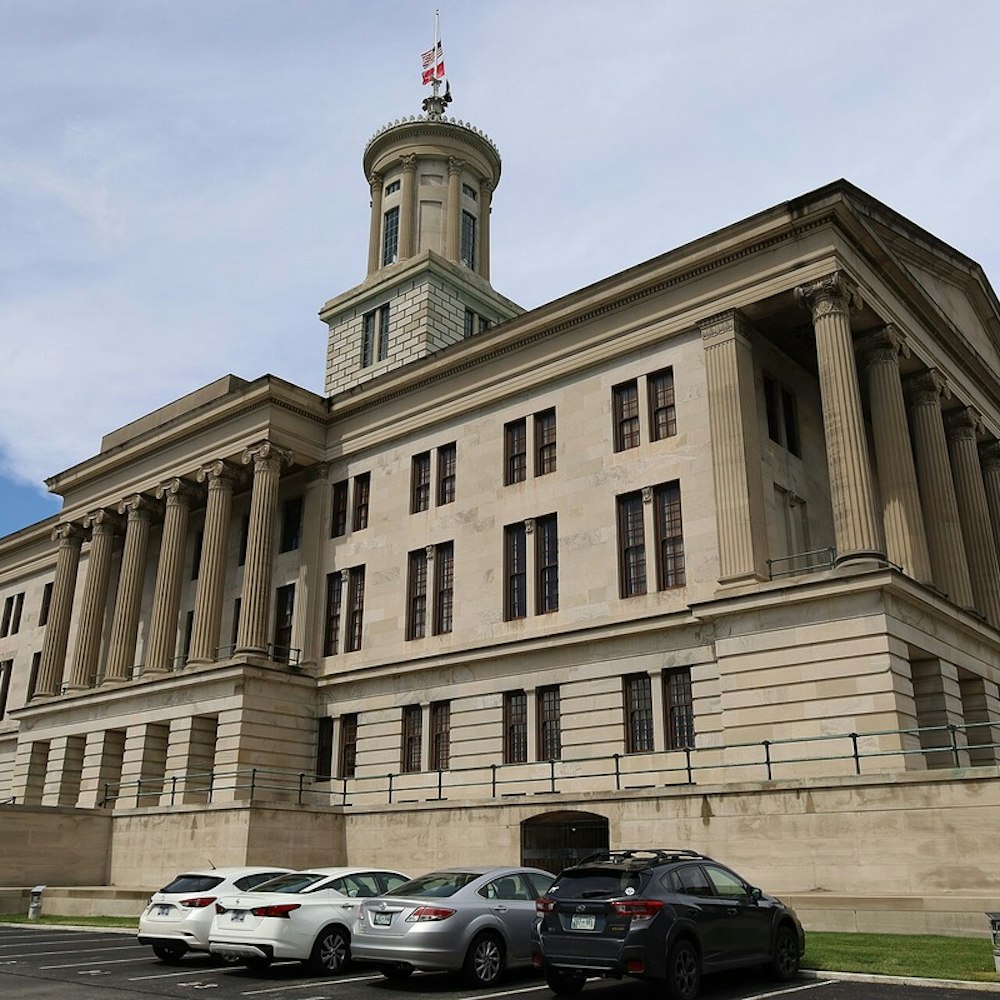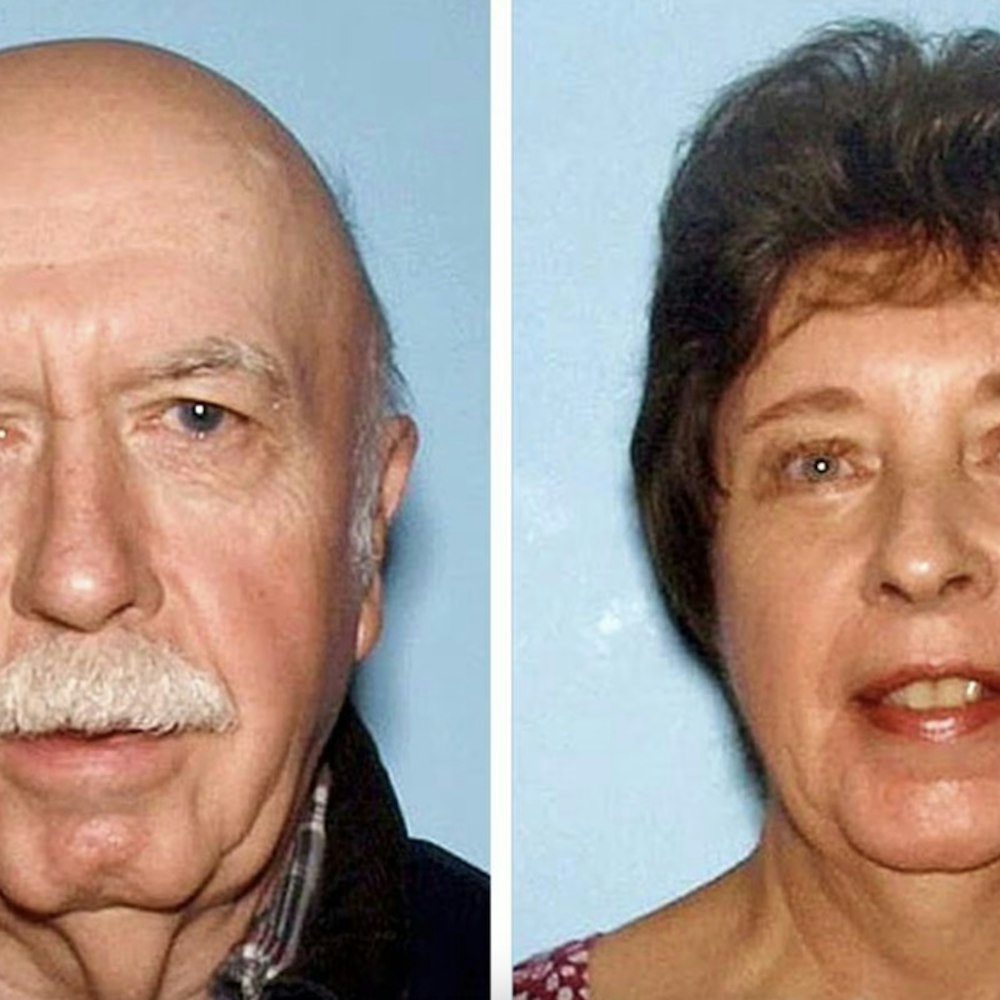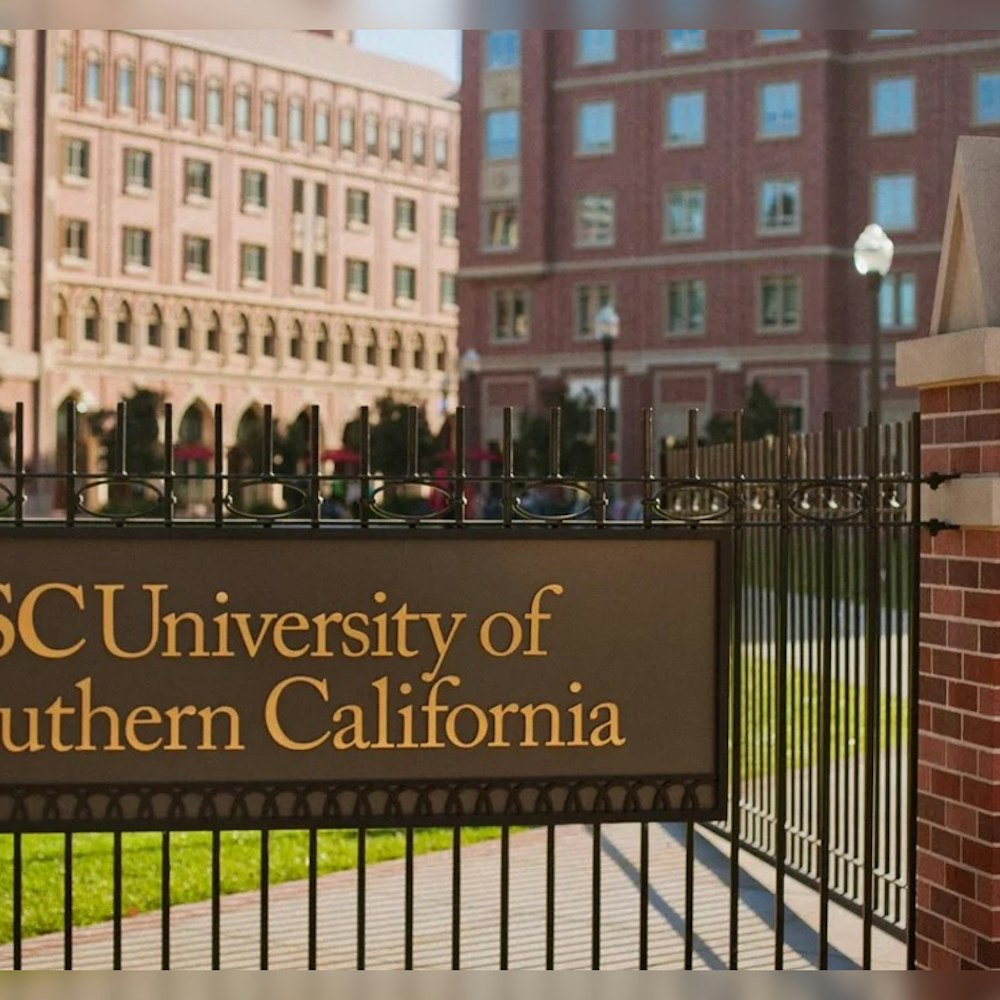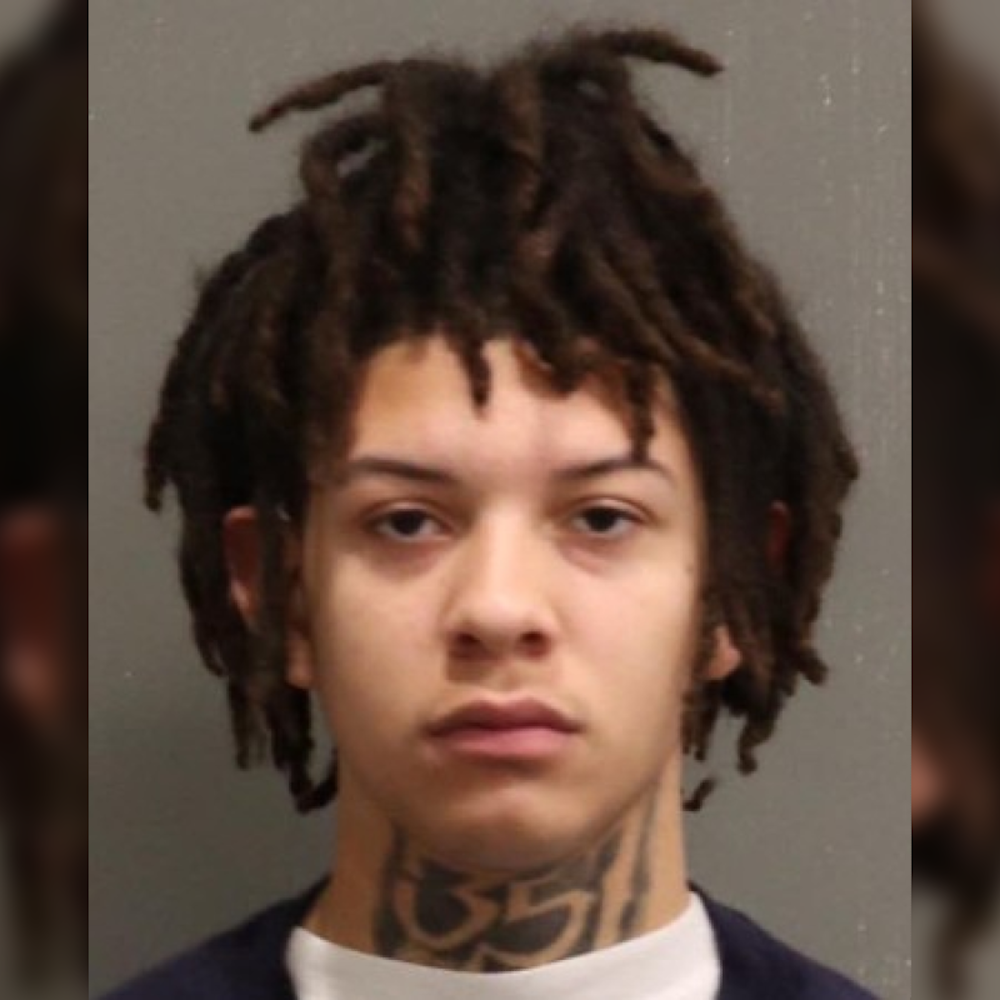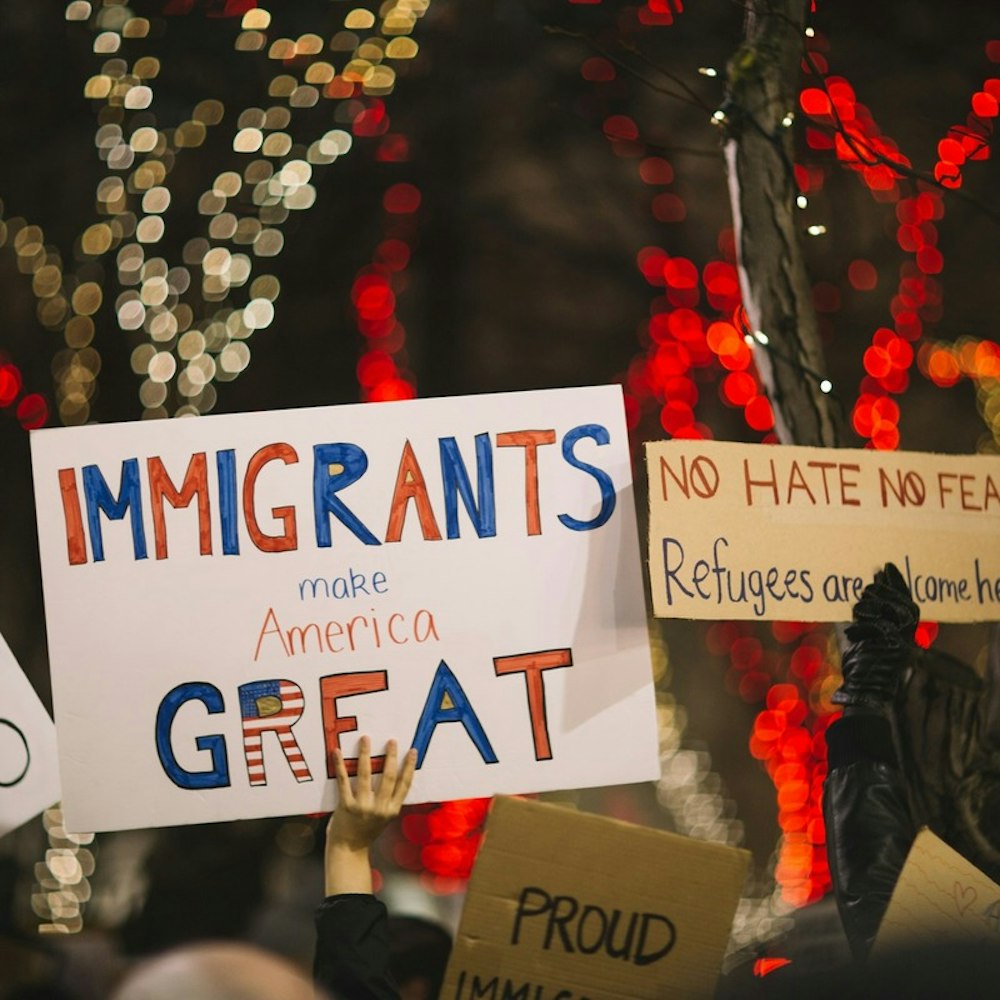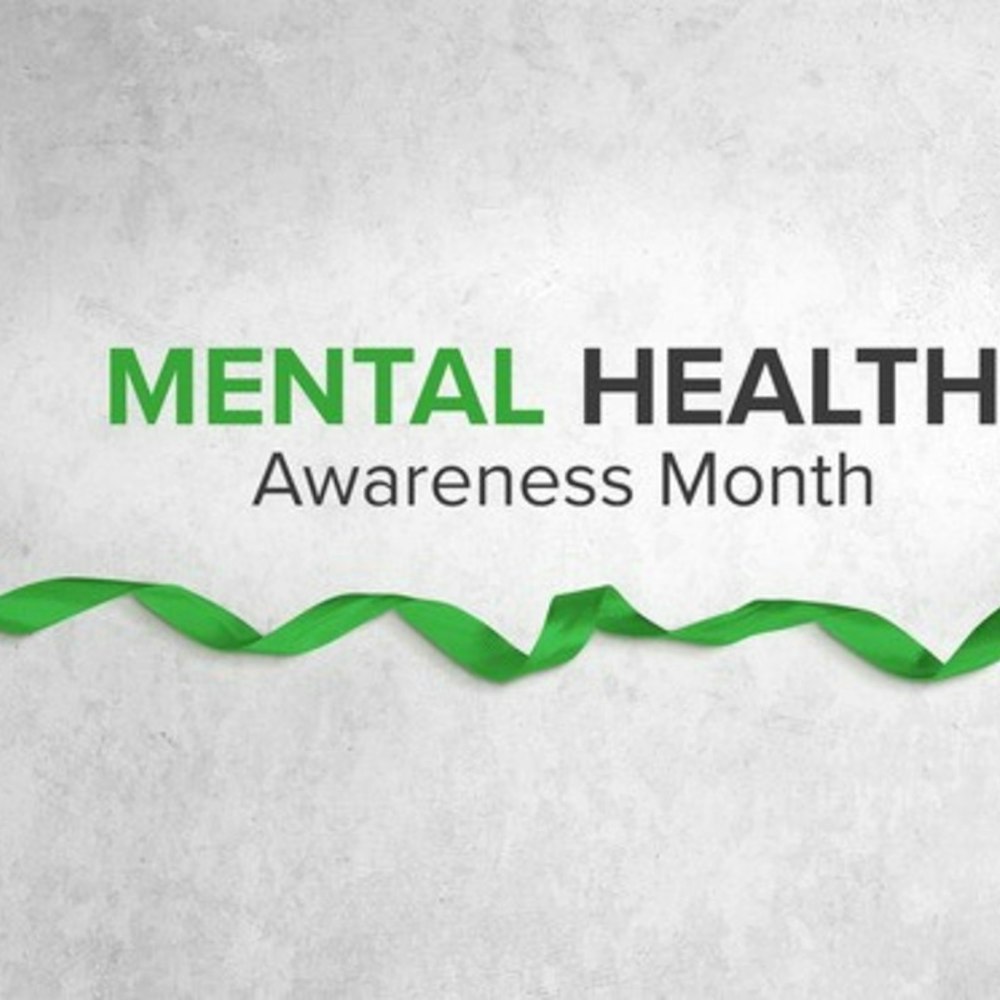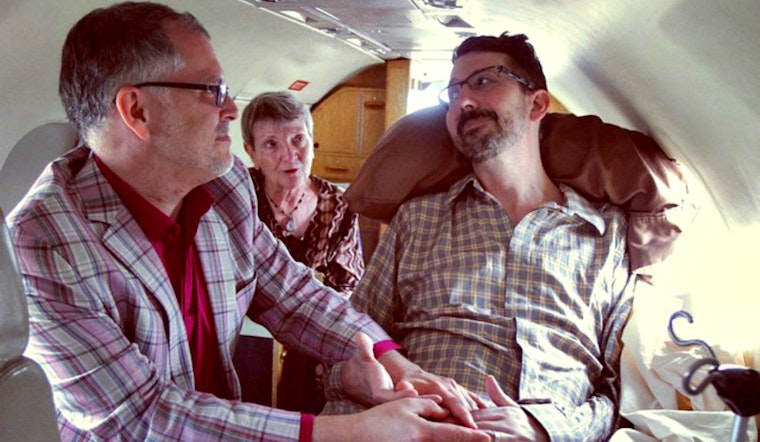
“It’s been odd,” said Jim Obergefell, the lead plaintiff in the 2015 United State Supreme Court case that established marriage equality in all 50 states. “John and I were always open about who we were, but we were pretty private people and never wanted to be someone who was in the limelight or who was recognized.”
Although Obergefell’s name might be difficult to pronounce, it will forever be cemented in history. Since the court’s decision, Obergefell has stepped into the national spotlight and has emerged as a heavyweight LGBTQ activist in an ongoing conversation about—and an ongoing fight for—equal rights.
“It’s been an adjustment, but all I can say is, 'it’s okay with me,'” Obergefell said. “I’m recognized by people because John and I fought for something that mattered, we and all the other plaintiffs in our case fought for what was right, we were fighting for our civil rights, and if I’m going to lose my anonymity, if I’m going to suddenly be recognizable, then I can’t think of anything better to do.”
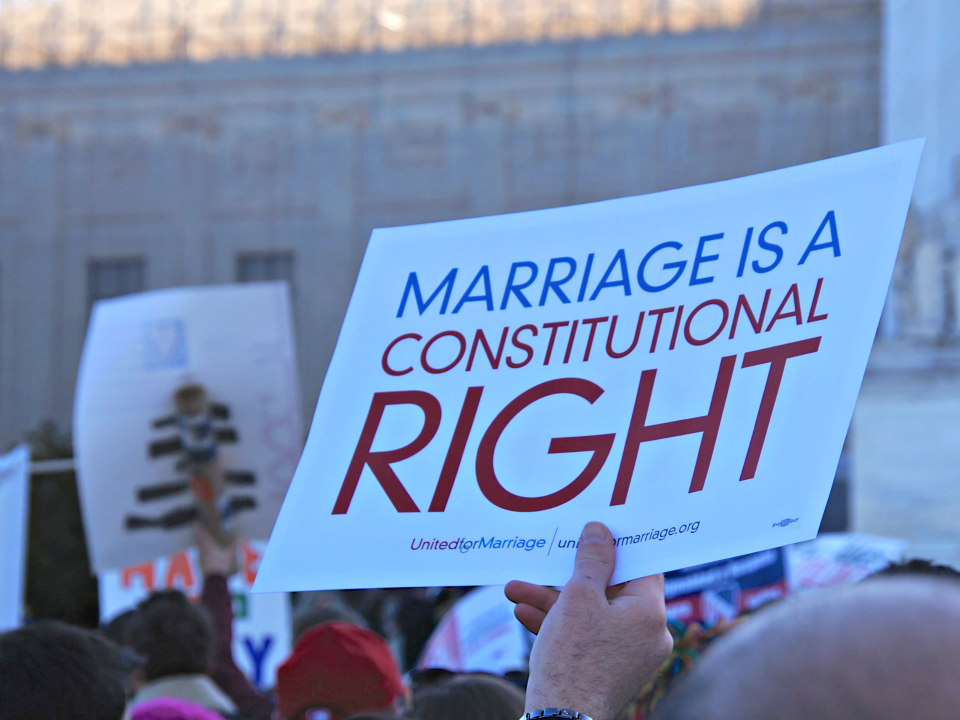
Obergefell’s story is well-known. He and his ‘love at third sight’ soulmate, John Arthur, spent over 20 years together living in one of the most anti-gay cities in the America: Cincinnati. The two never wanted a symbolic marriage and insisted on waiting until their union had the same legal backing as other married couples in the country.
Following the DOMA ruling in 2013, Obergefell asked Arthur, who had been diagnosed with Lou Gehrig's Disease (amyotrophic lateral sclerosis) and whose health was deteriorating, to marry him. Arthur said ‘yes.’ The fiancées were barred from marrying in their native Ohio, and with Arthur’s need for hospice care, the couple’s options were limited. Obergefell put a post out on Facebook asking if anyone knew of any medically equipped charter planes, and just like that, donations came pouring in to send the two to Maryland to get married.
Obergefell and Arthur flew from Cincinnati to Baltimore and were married in the plane, on the tarmac, before returning to Ohio for a reception with friends and family. Three months later, Arthur died. The legal battle that ensued, to have Obergefell’s name placed on Arthur’s death certificate as his spouse rather than listing Arthur as single, eventually made it all the way to the Supreme Court of the United States of America.
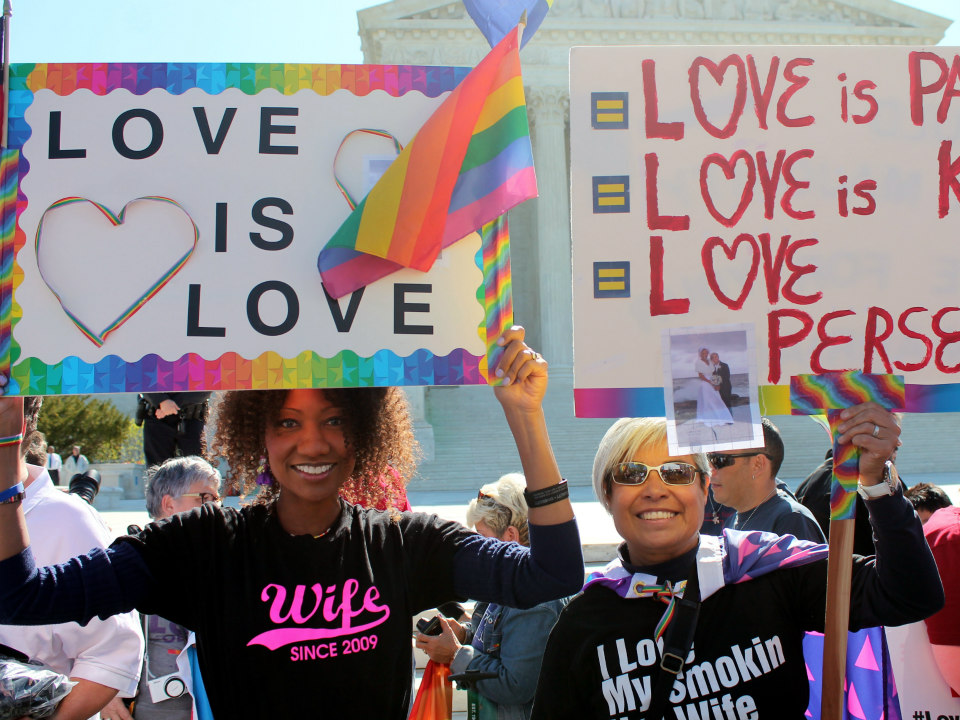
On June 26th, 2015, in the case of Obergefell vs. Hodges, the nation’s highest court ruled that the constitution does in fact support same-sex marriage, granting Obergefell and his deceased husband equal rights to other married couples. Twenty-four hours later, Obergefell was on a plane to San Francisco to participate in the city’s Pride Parade.
“Other than the actual decision day,” Obergefell said, “it was probably the most emotional and meaningful experience that summer. I went down that parade route and saw the hundreds of people lining that parade route. To see the tears on their faces, and knowing that [those] tears weren’t just there because of the ruling, but understanding that those tears were for their friends and partners and loved ones. I cried the entire parade route.”
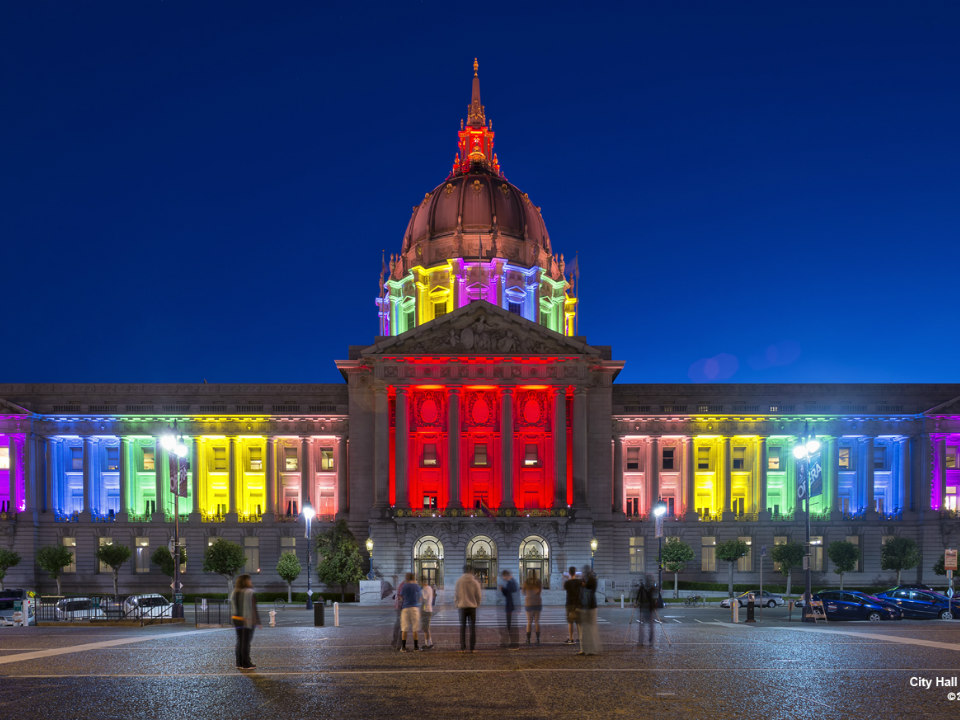
Obergefell doesn’t bemoan his loss of anonymity following his SCOTUS experience. It helped him to realize that he had a desire to fight for equality. “I’ve embraced a new life as an activist,” Obergefell said, “and that’s been a really good personal growth experience for me.”
The “accidental activist,” a nickname given to Obergefell by the Washington Post, has become a champion for the LGBTQ community, and he was hard hit by the nightclub killings that took place in Orlando.
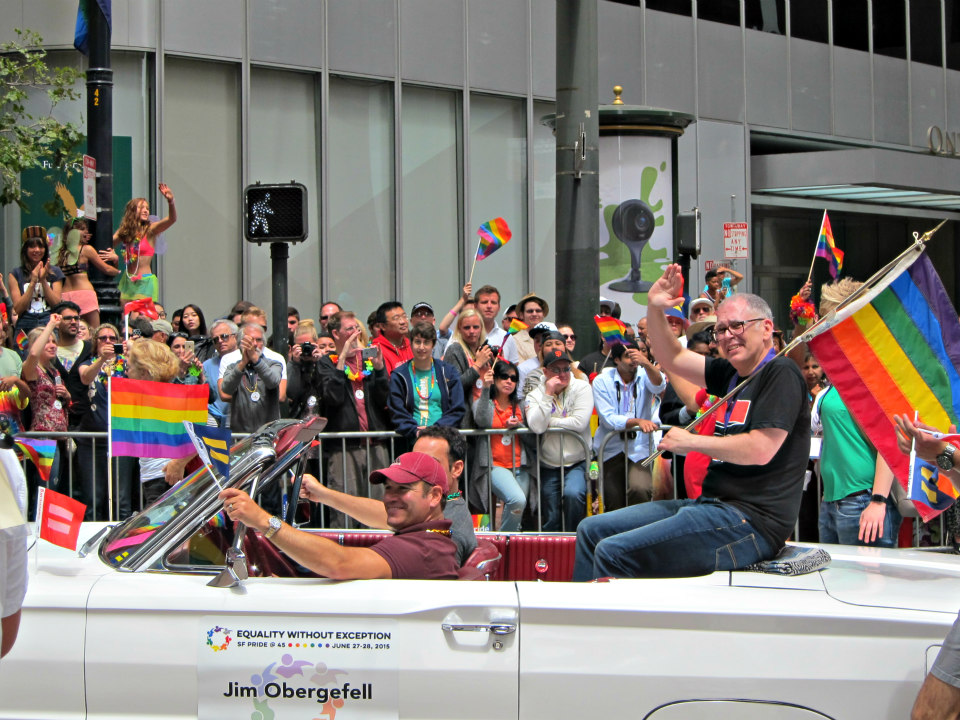
“It was a horrible event, and it strikes at one of our safe places: a gay bar. That’s one of the places we’ve always relied on to feel safe and ourselves,” Obergefell said. “We took an enormous step forward last year with marriage equality and there are people across the country since then who have been trying to drive us back.”
“It’s impossible to understand the hatred and disdain for human beings that could drive someone to do something so horrible. It’s a step back for those families, for the people we lost, for the people who were injured and for what it means to be American,” he said.
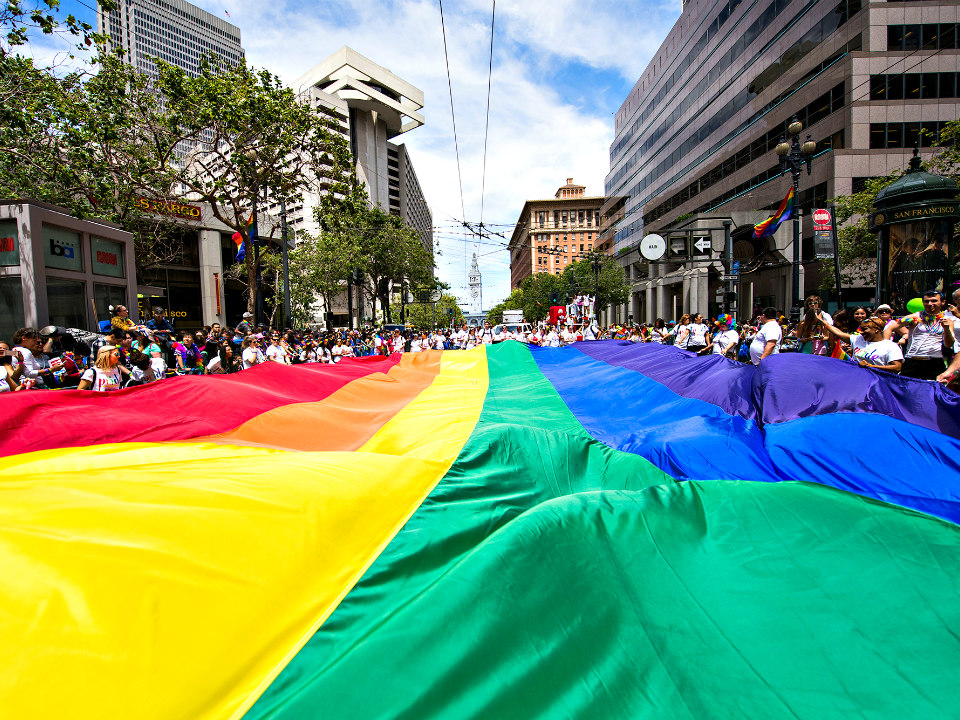
“Do I think it’s a step back for the LGBTQ community in general?” we asked Obergefell. “It’s a blow,” he said, “but I think what the world is already seeing is we are a family: we protect each other, we welcome each other, we welcome regardless of differences. If anything, this horrible act will result in our community becoming even stronger and more resilient. We will gain more allies. Good will come out of this. I have no doubt.”
Some good that may come out of this tragedy, by way of public outcry and legislative action, is to repeal the ban that exists on gay and bisexual men from being able to donate blood. “[It’s] one of the things we need to fight for,” Obergefell said.
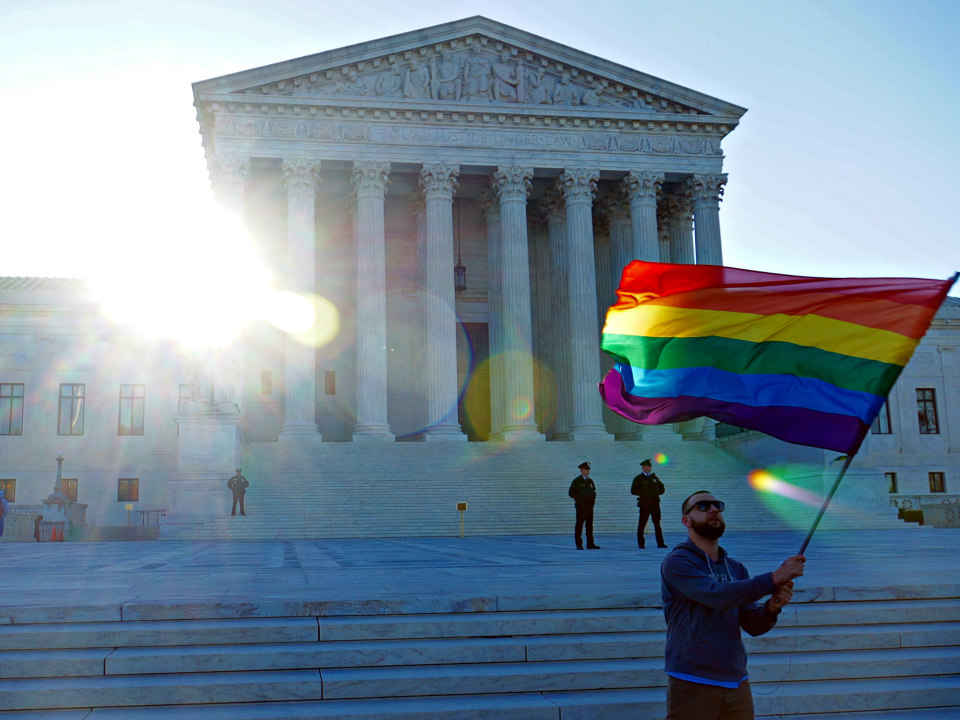
Many of the friends and loved ones of the Orlando victims weren’t able to donate blood, and some have said that it was easier for the shooter to obtain the automatic rifle used to carry out the massacre than it is is for a gay man to donate blood. “The fact that one gay man whose partner was injured in this attack wouldn’t be able to donate blood based on law and policies and the fact that any policy would prevent one loved one from donating blood for their loved one, that’s unconscionable. It’s so unnecessary and so hateful.”
Obergefell knew that there would be backlash against the LGBTQ community following the Supreme Court’s decision, although he could have never imagined something like the Pulse nightclub slaughter. “Opponents have realized that they lost the fight against marriage, and they also realized that they lost [against] the LGB part of our community. I think they realize the ‘T’ part of our family is most vulnerable and they’re going after them with everything they have.”
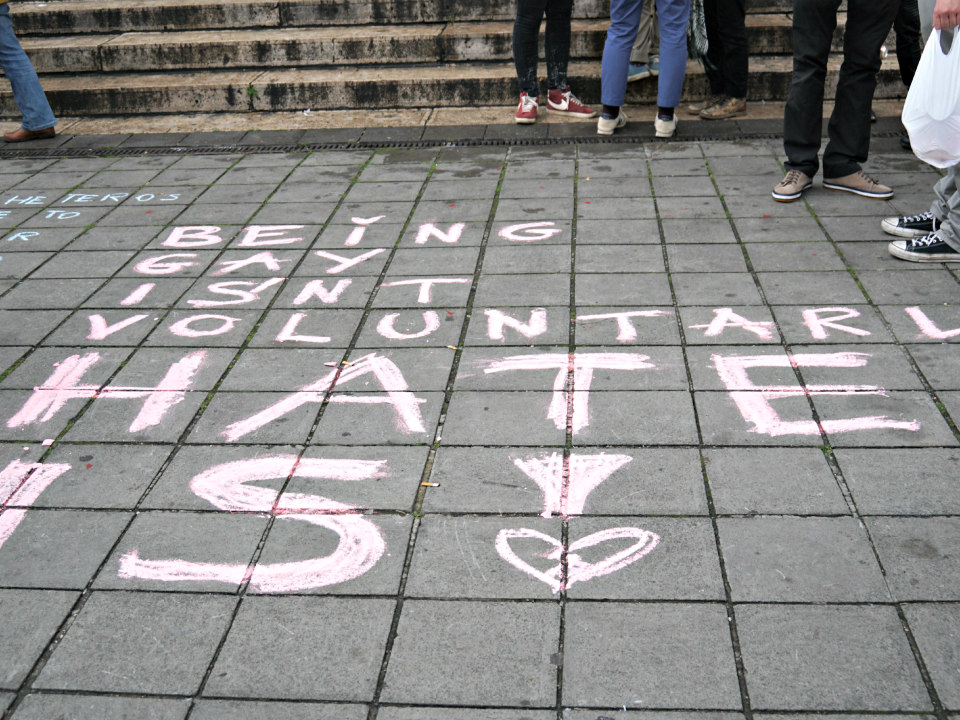
Just last week, Obergefell changed the venue of one of the Cincinnati locations that was slated to host a stop on his book tour. The library recently decided to not offer equal benefits to transgender employees. “The issue here in Cincinnati comes down to this for me: John and my fight was all about being treated equally, being able to participate in life equally to other Americans, to be able to live openly, happily, and hopefully. Our transgender citizens have every right to be whole, and part of that is insurance covering gender confirmation surgery, and for me, I couldn’t walk into a space and talk about our fight and talk about love without rights.”
Tonight, Obergefell will be at the Castro’s GLBT History Museum talking about his book, Love Wins: The Lovers and Lawyers Who Fought the Landmark Case for Marriage Equality. Following his husband’s death, a lot of people advised Obergefell to write a book. “For a good year and a half, I was way too deep in my grief to think about [writing a book], let alone to consider it,” Obergefell said.
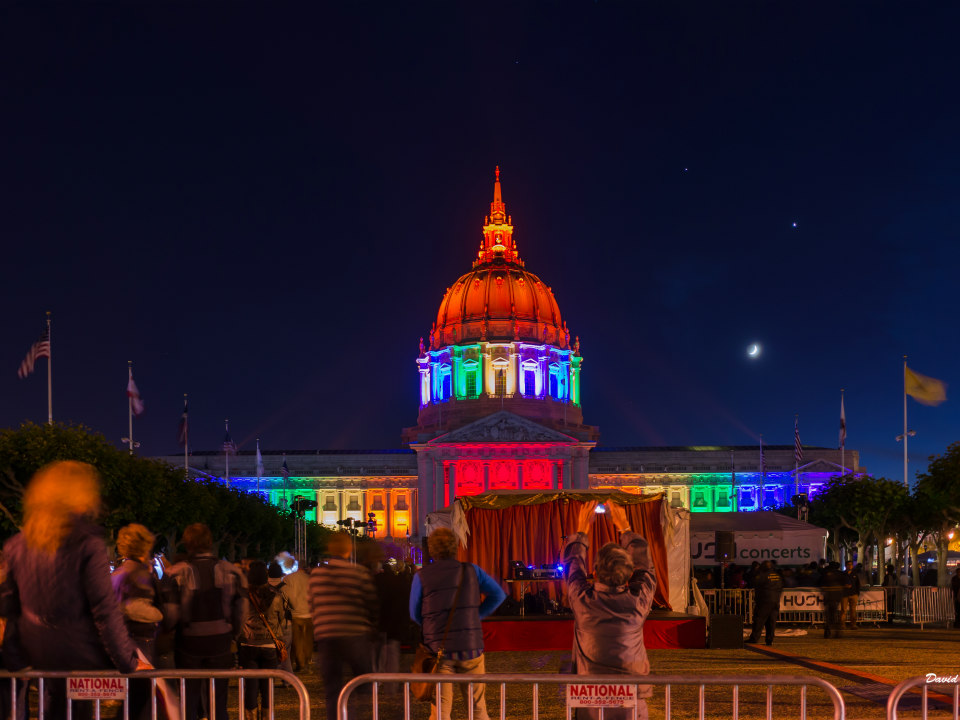
However, according to the activist, things fell into place. His eventual co-author, Debbie Cenziper, is the ex-wife of his husband’s first cousin. “[Cenziper] called me out of the blue,” said Obergefell. According to him, she had a literary agent that was pushing her to write a book but she was hesitant to take on a project until she had a story that she was truly passionate about. “This story is it,” Cenziper told Obergefell. “Do you wanna write a book?” “Let’s do it,” he said.
“It really just fell into place and Debbie was the perfect partner to do it to make me feel comfortable. It was one of those things, it felt like it was meant to happen.’
Obergefell is thrilled to be visiting San Francisco. “As a member of the LGBTQ community, San Francisco is really kind of our spiritual home. Going there, and having been in the Castro, you just feel like you’re home.” Although he was at San Francisco’s Pride festivities last year, he will not be able to attend this year’s parade, as he will be in our nation’s capital for a friend’s wedding. He did, however, encourage others to not let the events in Orlando dissuade them from getting out and celebrating.
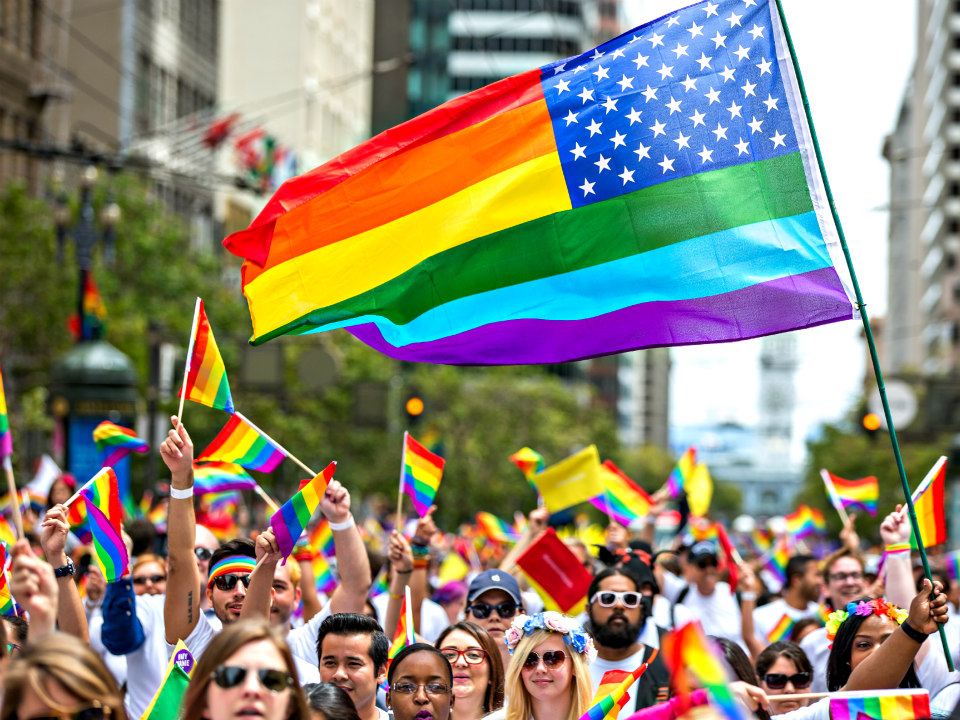
“We are all afraid, but if nothing else, I’ve learned over the past couple of years that fear—of losing my husband, of a court system, of anything—can paralyze us,” Obergefell said. “I absolutely get why someone would be afraid to go to a Pride parade or to any type of event, to a bar. But it’s when we take that stand, that moral stand, that stand that says ‘I matter, I exist, and I’m going to be there with the people who understand and love me,’ that’s such an incredibly powerful feeling: that feeling of community, that feeling of strength and power that you get from being with other people.”
“Don’t let fear, don’t let this horrible act prevent you from experiencing that,” he said, “because that’s what our community is about, and the only way we’re going to keep moving forward and keep our country moving in the right direction is by standing up to fear and standing up to hate. Don’t think about the fear, think about what you have to gain. And there’s so much to gain for all of us.”
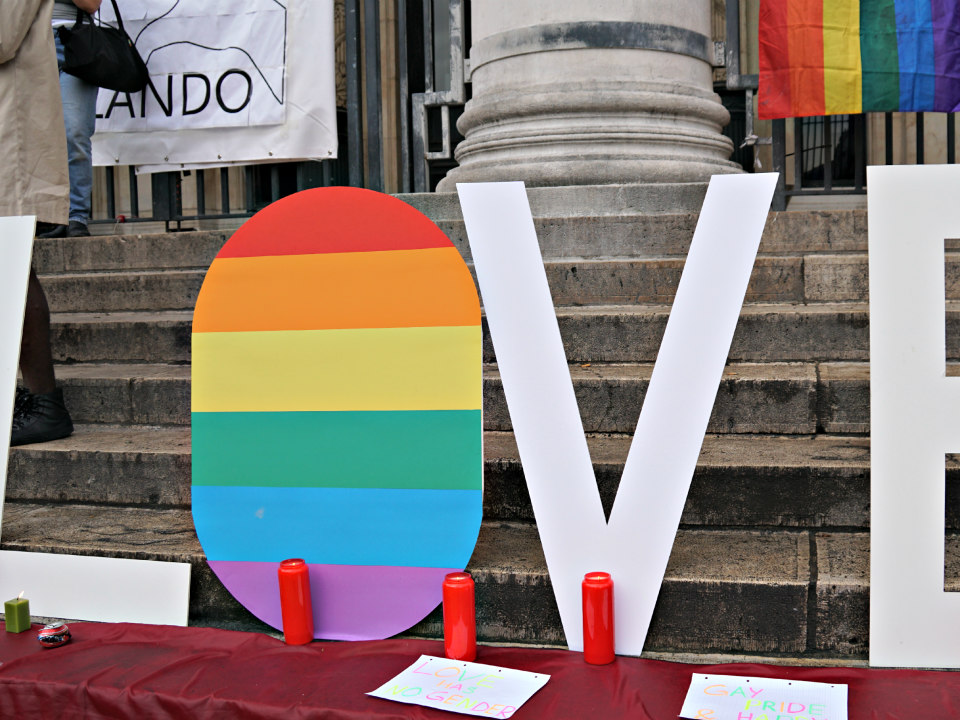
According to Obergefell, this weekend’s Pride should continue to be about celebrating love. “It is all about love, the love that we share for wanting our world to be a better place, our love for fellow humans. And if we can’t fight for love, if we can’t stand up for love, if we can’t say love is what really matters in this world, then I think we’ve lost sight of the most important thing,” he said. “And I’m not willing to let that happen.”
“I will keep fighting,” the accidental activist said. “I will keep speaking up. And I feel really fortunate to have so many people standing with me.”
Even though Obergefell won’t be able to be with us this weekend, you have the chance to stand with him tonight at the GLBT History Museum from 6-9pm.